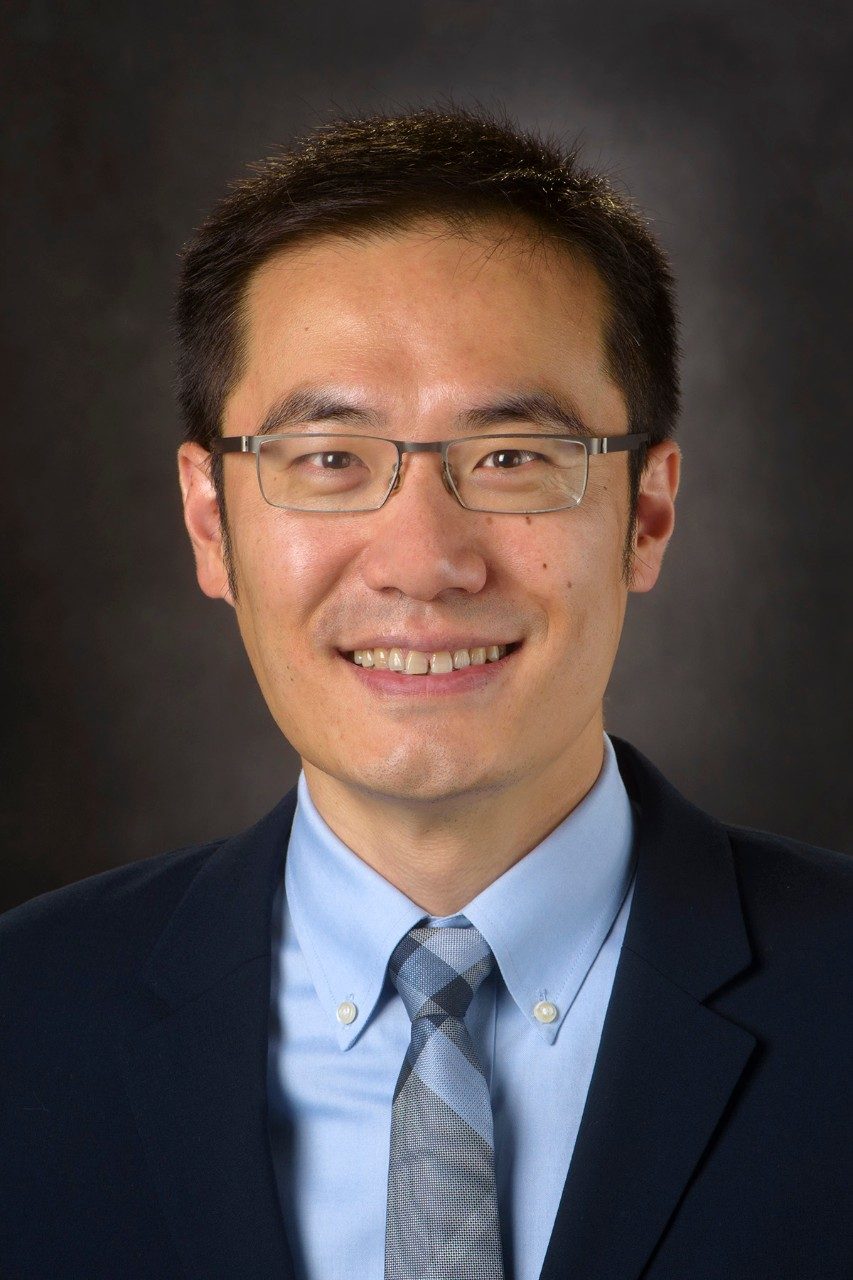Faculty
Experimental Radiation Oncology Faculty

Junjie Chen, Ph.D.
Chair
Research Interests:
- Molecular mechanisms of DNA damage response and repair pathways in genome maintenance and tumor suppression
- Proteomic analysis of oncogenic and tumor suppressive pathways
- Investigation of gene-gene and gene-drug interactions involved in cancer development and therapy

His lab studies metabolic stress-induced cell death, particularly ferroptosis, in cancer. Currents efforts aim to study:
- The role and mechanisms of ferroptosis (a form of cell death induced by lipid peroxidation) in tumor suppression and how to target ferroptosis in cancer therapy
- The role of cystine transporter SLC7A11 in the regulation of nutrient dependency and targeting its associated metabolic vulnerabilities in cancer therapy

Research Interests:
- Developing and applying cutting-edge mass spectrometry approaches to identify hitherto unknown signaling proteins and ligands and resolve the cascades of localized phosphorylation events in checkpoint signaling

Research Interests:
- Inhibition of LMW forms of cyclin E as a therapeutic target in combination therapy for triple negative breast cancer
- Delineation of how the alteration of cyclin E, a G1 cyclin, could lead to the tumorigenic phenotype and determination of the oncogenic potential of the altered forms of cyclin E in breast cancer
- Determination of the mechanism of action of intracellular elastase and its inhibitor elafin in tumorigenesis and subsequent metastasis
- Examination of mechanisms of action and resistance to CDK4/6 inhibitors in ER positive breast cancer patients
- Identification of novel treatment strategies, targeting the cell cycle, for soft-tissue sarcomas

Research Interests:
- Discovery and rigorous characterization of non-coding RNA functions in normal physiology, cancer, and metastasis
- Identification of deubiquitinating enzymes as antitumor and anti-metastatic targets
- Decoding the roles of developmental regulators in the development, metastasis, and response to therapy of cancer and other diseases

Research Interests:
- Pancreatic and lung cancer: the leading causes of cancer death
- Adoptive immunotherapy: CAR T cell-based therapy development
- Biochemistry: novel and "orphan" enzymes substrates discovery
- Genetics: CRISPR/Cas9 animal models for cancer pharmacogenomic

Research Interests:
- The effects of radiation and chemotherapy on male germ cells
- Fertility preservation for boys and young men undergoing cancer therapy

The overarching goal of his research program is to understand the mechanisms of tissue regeneration and tumorigenesis by employing genetically engineered mice and organoids and to specifically answer two critical questions:
- Is tumor cell plasticity a therapeutic vulnerability of cancer?
- Can manipulating cell plasticity promote tissue regeneration, or even prevent tissue damage?

Research Interests:
- Identifying and targeting drivers of breast cancer metastasis
- Identifying and targeting vulnerabilities in treatment-refractory primary TNBC
- Defining features that enable indolent breast cancer to advance to aggressive disease
- Elucidating how fasting and different diets protect small intestinal stem cells from lethal doses of chemotherapy and radiation therapy

Research Interests:
- Understand how oncogenic signaling pathways and tumor microenvironment regulate cancer development and metastasis
- Search for biomarkers and context-specific therapeutic targets for personalized cancer medicine
Radiation Oncology Physician-Scientists
Experimental Radiation Oncology supports research laboratories from the Division of Radiation Oncology

Albert C. Koong, M.D., Ph.D., FACR, FASTRO
Division Head, Radiation Oncology Department Chair

Phuoc Tran, M.D., Ph.D.
Chair, Genitourinary Radiation Oncology
Research Faculty Appointments

Hampartsoum Barsoumian, Ph.D.
Welsh Laboratory

Scott Bright, Ph.D.
Sawakuchi Laboratory

Yalan Deng, Ph.D.
Ma (Li) Laboratory

Weiye Deng, Ph.D.
Jiang (Wen) Laboratory

Rezvan Esmaeili, Ph.D.
Keyomarsi and Hunt Laboratory

Youming Guo, Ph.D.
Koong Laboratory

Simone Hausmann, Ph.D.
Mazur Laboratory

Dadi Jiang, Ph.D.
Koong Laboratory

Yan Jiang, Ph.D.
Piwnica Worms (Helen) Laboratory

Kyung-Pil Ko, Ph.D.
Park (Jae-Il) Laboratory

Hyemin Lee, Ph.D.
Gan Laboratory

Guang Lei, M.D., Ph.D.
Gan Laboratory

Nan Li, Ph.D.
Lin (Steven) Laboratory

Xiaoyin Lu, Ph.D.
Mazur Laboratory

Poliana Marinello, Ph.D.
Sawakuchi Laboratory

Chenlling Meng, Ph.D.
Zhao (Di) Laboratory

Litong Nie, Ph.D.
Chen (Junjie) Laboratory

Nahum Puebla-Osorio, Ph.D.
Welsh Laboratory

Amanda Rinkenbaugh, Ph.D.
Piwnica Worms (Helen) Laboratory

Frank (Steven) Laboratory

Liang Wang, Ph.D.
Koong Laboratory


Yuelong Yan, Ph.D.
Gan Laboratory


Yang. Zhao, Ph.D.
Ma (Li) Laboratory

Dandan Zhu, Ph.D.
Chen (Junjie) Laboratory
Administrative Support Team
Experimental Radiation Oncology Support Staff
Tonya E. Foreman
Department Administrator
Kim Do
Operations Manager
Carolina Rangel
Associate Director Laboratory Operations
Abigail E. Zachary
Sr. Financial Analyst
Cathy V. Ramirez
Grant Program Manager
Jessica N. Fields
Grant Program Coordinator
Tyler B. Clark
Grant Program Coordinator
Danielle N. Rudolph
Sr. Administrative Assistant
Catalyst Training Program Support Staff
Kara Lewis
Administrative Director
Valoree Solis
Program Manager
Monica Galaz-Montoya
Program Manager
Emily Cavazos
Training Program Coordinator
Radiation Oncology Zayed Lab Support Staff
Jeffrey Sarmiento
Associate Director Research Planning and Development
Tameka Fraser
Program Manager
Tara Fujimoto
Research Laboratory Manager

















